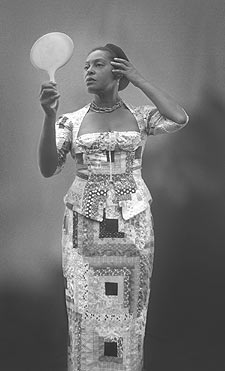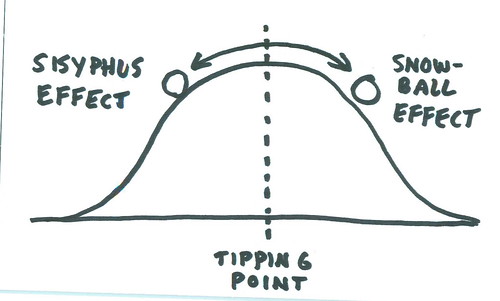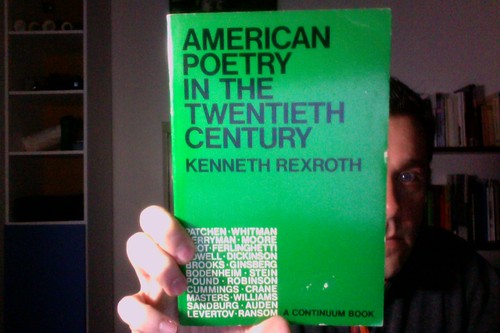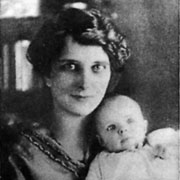Originally titled "Jordan Jones, Then and Now," "'Use it.'" was published in 1992 in West, a journal edited at Hampshire College.
“Use
it.”
by Sarah Sarai
When
Jordan is a boy, his father signs him up for Scouting. “Be good
for you, son.” Jordan asks why and his pop bops him one on the
head, then pours out a tall whiskey. Hunkers into his chair.
“Fellowship,
companionship. It’s good to be like everyone else.”
Jordan
tries.
“I
eat wimps for breakfast,” Scoutmaster Frank snarls. The stumpy
man’s shoulders move up his neck with stealth as one eyebrow lifts
like a Black Hawk on a mission. “You a wimp, son?”
In
an early wet summer the troop is camping in the mountains. All eight
Scouts huddle around the fire, and listen to wood crackle like an old
radio in a garage. They’ve dragged through wet mud all day. Hoping
to prevent mildew growth, Jordan sets his boots by the fire.
“Eat
it.” Jordan must look startled because Scoutmaster tears at one of
Jordan’s boots with meaty hands, snorting as the toe guard loosens.
He hacks away with his reg knife and displays the crusty leather
like it’s a freshly slain fox. Jordan chews a small chunk of shoe
and more meekly throws up. The following day, wearing sneakers, he
leads the troop along rocks and twisty trails, to show he’s no
weakling.
“Maybe,”
the leader spits, “you’re not a wimp, kid.” He levels his gaze
to Jordan’s darting eyes. “Time will tell.” Jordan doesn’t
reveal that his favorite part of camping is wishing on every bright
star in the dark mountain sky to make him a girl.
He
quits scouting. “Mom, it’s just no way to have fun.” He and
his mother are standing in their small service porch, Mom at the
ironing board, Jordan folding terry cloth towels. The windows’
limp green curtains flutter like a trapped canary as the steam iron
clunks along. Mom responds variously and with a pause between each
comment.
1.
“Good for you, Jordan.” She whacks at an inset shoulder.
2.
“That was a stupid thing to do.” Mom slops brandy into her
morning coffee, and taking slight care to avoid making creases,
slings Jordan’s father’s shirt onto a wire hanger.
3.
She unplugs the iron; plugs it in again; looks around as if for a
clue to her next move. “What’d you say?”
Jordan’s
parents are light on child-rearing theories. Parenting as a concept
or philosophy would strain the native inevitability of their
approach: eat drink read have a kid see the kid reads. His parents
are not en-people. En-people have en-kids. Empowered enabled
entitled. His father, like an N-reactor, however, is unpredictable.
He expresses pleasure at the demise of Scoutdom in the family.
“Bunch
of militarists. Stay home. Read a book. Learn to smoke. That’s
what a boy should do. Learn to smoke.” He gives his startled son
fifty cents for his first pack of cigarettes and returns to Huck
Finn
after refreshing his drink.
So
Jordan smokes and plays with dolls and secretly dresses this way and
that. He volunteers as prop master in the school plays and is also
dummy for the hemming and fitting of the leading lady’s clothes.
Wearing dresses with ruffled skirts and fitted bodices makes him feel
normal. Then and now he is the same height and weight as the school
prima donna. Then and now: 5-3, 130, black hair with waves like a
pond on a sweet breezy day.
High
school is the pits and that’s enough of that. Everything happens
after he graduates. Instead of going to college, which he assumes
will be an extension of the discomforts of high school, Jordan is a
clerk in the main library downtown. Now all along he accepts his
virility as a fait
accompli
and one of nature’s cruel flukes, yet feels wrong and empty. He
figures there must be something in the world that can make him happy.
He
meets Heidi. She’s an auditor for the City and comes to the
library to examine financial ledgers. “I don’t really like to
read,” she explains, tucking a blonde wisp behind her glasses. She
pauses at his desk to ask if there’s a snack bar and as if she were
at least a little chagrined by her nonintellectual admission—which
he later realizes she isn’t—nervously bites her bottom lip, thin
but painted, and reveals shallow dimples on either cheek.
“So
what good are books?” He slips out his marker from volume four of
Galsworthy’s Forsythe
Saga,
suddenly finding all families, unhappy or happy, to be merely
worrisome. He decides then and there that Heidi’s attitude, which
keeps her safe from fiction’s heady twists, is the right one to
have. He directs her to a coffee shop a block away and offers to
meet her for lunch.
Heidi
is five years older than he is and everything he isn’t: tall,
slim, blonde, mathematical, remote and female. He falls: splat into
love.
About
the same time as he meets Heidi and in what feels like a parallel but
distant galaxy, he becomes incensed, like he’s a chafing dish with
an eternal flame as sterno. A tan skinny woman in turquoise sweats
and loose strings of gold chains comes into the library and asks for
the works of Shirley MacLaine. “Lady, look on the astral shelves,”
he snaps, punching a blank piece of paper in the automatic date
stamp. She’s confused. “You’re stupid, you know that?”
When
a bug-eyed mother of two loud brats demands he remove Lord
of the Flies,
he rips out the flyleaves from three copies of the book she’s
carrying and crams them into her cold sweaty hand. The deciding
incident occurs in the elevator heading up to the fourth floor. Some
athletic coach-type presses the third-floor button, in search of
cowboy paperbacks Jordan figures, flipping the coach-type the bird
followed up with a resonant raspberry. The head librarian, Mrs.
Applebalm, insists Jordan get help.
After
a few phone calls and referrals followed by more phone calls and a
screening interview so that he can be more incisively screened and
referred, he begins seeing a therapist and attending group. Everyone
in the non-geometric circle talks about their parents and he takes
the hint, revealing more than he thought he knew or remembered.
“I
don’t think they listened to me very closely.” He looks at the
members of group, sitting on folding chairs in the dumpy room with
People
and Psychology
Today
on the Formica coffee tables.
He
tells about the Fall day his parents drove to the desert to practice
archery. Pop and Mom noisily unloaded the car; slung on quivers.
The red rocks watched them without comment. “Stay close to me,
Jordan,” his father cautioned. He screwed the cap back on his
flask and aimed his thirty-weight bow straight up. “Galileo didn’t
think of this one,” he boasts, shooting a steel-tipped arrow into
the clear desert air.
“Watch
out, Pop,” Jordan warned, weakly tugging at his father’s arm.
“Son,
have I ever steered you wrong?”
They
shaded their eyes and watched transfixed as the arrow shot straight
up in a seeming attempt to outrun natural laws, give up, accede to
the inevitable and shot straight down, landing one foot from where
they stood. Only its striped feathers were visible above the desert
earth.
Jordan’s
mother came running. “Oh my God,” she shouted at Pop, “you
could have been killed.” She slugged Jordan on the arm. “You’re
supposed to take better care of your father. This is your fault.
Why aren’t you like other boys?”
“What
are you talking about? The kid’s a bum. You a bum, Jordan?”
Jordan shrugged and tried without success to unearth the buried
arrow. Pop bopped him one on the head. “Let’s eat,” he said.
“So are there sandwiches or not?”
“What’s
the rush?” Mom stretched and smiled as sweetly as Eve awakening
into another morning in paradise, maybe her last. She stared at
Jordan as if trying to remember who he was and reached for Pop’s
flask.
Jordan’s
therapy group hears the family narrative. His sharing is even more
intensely tracked when he joins an anonymous fellowship. “I think
Heidi’s not like my family. I think Heidi does care,” he
explains. His throat hurts. “I think she does listen.” Folks
look concerned, their eyes flickering compassion and warning. “She
does,” he insists, pushing on his Adam’s apple. She’s not a
woman to love too much.
Well,
they do have some good times. She’s a birder, a fact which
inspires him to buy several field guides. Heidi the auditor says he
shouldn’t be so extravagant.
“I
thought you liked birds,” he protests. “Heidi, your interests
are my interests.”
“Jordan,
there’s no need to spend money.” They are speaking on the phone,
but he can imagine the stern line of her lip, ending in a dimple like
an indentation in sand. He traces hearts and their initials in the
margins of a guide to feeder birds.
One
time they drive a bit on a Saturday morning and park his beater of a
car by an open field. “That’s a Robin redbreast, Jordan. You
know them.” Heidi hands him her thrift-shop binoculars. He
adjusts for myopia then locates: a fingerprint, an abandoned
Chrysler and, finally, a simple winged creature, a Turtus
migratorius, etc. etc., as Heidi explains.
“More,
more,” he says, enthused by her erudition. Heidi bashfully lowers
her eyelids and suggests they drive further up the road. They hold
hands when they arrive at the next spot. Rain has begun to spatter
her window and the trees and sturdy grasses hide the birds from their
view. “I love you, Heidi. I want to be just like you.”
He
invites her to a party that night, a fellow library clerk has become
engaged to her high school beau, now an English teacher, but Heidi
says she’s had enough for one day, not that she’s had enough of
Jordan, but that she’s tired. By the time he drops her off, she’s
nodding blankly as he gabs on. He describes his parents; his
reluctant masculinity; career dreams; the big changes he feels
imminent within.
“I
had fun.” Heidi clutches the door handle, her knuckles white as a
pigeons’ breast, “and I think we should do this again and I’m
glad you’re around because you’re good for me.” He asks what
she means and she says that he makes her contact her own emotions and
dreams, which she understands is important to do.
Jordan
is in heaven. Someone wants him to be as he is, talkative and
questing. They go birding two more times and Heidi opens to him like
the door to her soul is an not only an automatic one, but has a
back-up generator for emergencies, or so he believes. “Sometimes
I’m scared,” she confides. When he asks her of what, she furrows
her brow and squints as if she sees a new aerial species on a far
tree. She talks about staying with the City for another ten years
and then moving to private industry. Cutting expenditures is a
lifelong goal. His goals are also grand but not so specific. He’s
begun taking college classes and thinks about being therapist some
day.
“Could
you change, Jordan?” she asks as they eat her peanut butter and
margarine sandwiches on day-old bread. It absorbs the tastes better,
she maintains.
“How?”
“Not
always be so emotional?” She shakes out the baggies and tucks them
in her purse.
He
buys a string of pearls, and calls her that evening. They chat then
she says she’s tired and hangs up. He calls back and she hangs up.
He calls back again. She doesn’t answer. The next morning she’s
happy to talk.
“I’m
sorry,” he says.
“Don’t
be silly. I just unplugged the phone. I’m as happy as a clam.”
He’s
grateful she still wants to see him the next weekend. When they’re
together, Heidi tries on his pearls, but says the strand is too long
for her. She holds them up to Jordan’s face and quickly lowers
them.
A
few weeks later, they discuss commitment. She swivels those cool
green eyes to his teary blue eyes and says, “I have none.”
He
argues that he can change.
All
couples form habits and follow patterns and this is theirs: his
calling and getting hung up on several times; his panicking; driving
to her place, begging to be let in, being let in, sweet closeness,
and then fighting about the style of that closeness.
He
wears his first string of pearls to work. Whether or not the pearls’
luster set off his cherry cheeks and blue eyes is not the issue, he
now knows. He is still a biological man, feeling like a woman, in a
relationship with someone whom, these days, he wouldn’t even choose
to be friends with.
His
therapist notices his pearls. He acknowledges they’re more than
just a fashion statement. He wants the accessories that go along
with his accessories—like a bustline. His therapist also broaches
the fact that he claims to be in love with a human who only causes
him pain. He skirts the possibility. When that same issue of his
loving an inappropriate human comes up in his groups he is more
honest.
“I’m
terrified of being alone.”
After
the pearls come the lace collar, patiently tatted in 1899 by a
Philadelphia Quaker. He still owns it, it’s quite lovely. Then he
shaves the hair from his chest, arms and legs. He recalls that day
well, because he shaves the hair, then phones Heidi with the news.
“That’s
okay, Jordan,” she assures him. “That’s not why I don’t want
you.”
“But
do you love me?”
“I
don’t care to talk about that.”
“Will
you go out with me Friday?”
“If
you insist.”
“And
next Friday?”
“Don’t
hassle me.”
“Can
I come over?”
“No.”
“Please?”
She
hangs up. He calls back. No answer. He drives to her house. “Let
me in.” She opens the door, takes a hammer and begins to whack at
him. He gets a fleshwound. She bops him one on the head with her
fist. He falls to his knees, kisses her lap and stares at her with
adoration.
“A
woman likes being looks at like that,” she admits. “It makes a
woman feel good.”
His
transsexual support group hears as much about Heidi as they have
about what it’s been like to live on hormones, and go through four
operations. They’ve been great. His emotional peers are those who
know the impact of the pull of one body for another body; it’s as
strong as gravity as described by Newton, as distance between two
masses. This pull is the impact of his type of love for Heidi. His
peers help him disentangle himself from the shame of the pull. They
point out that Heidi is stuck.
They
remind him of the time he asked Heidi if she’d get counseling with
him. She refused, saying, “My boyfriend in high school tried
therapy, and it changed him.” She has a recurring dream which he
doesn’t divulge: “I’m in a stream, and a big group of loud
people are having fun over in the distance on the shore and I’m
wearing all my clothes, including my wool coat, and hugging my knees
and can’t get myself to move.”
While
he and Heidi are still going together and still fighting, she finds
someone else, and that’s that. Anyone who has ever loved, or been
loved, or had a friend who’s loved or been loved, or even sat next
to someone on a bus or plane or train, someone who’s loved or been
loved; anyone who’s ever read any of the greats, near-greats, or
purveyors of sleaze and trash, or seen an opera, soap, mini-series,
or movie; or followed the lives of the stars as recorded in the
tabloids, knows that story, so he’s free to continue with his.
Except
that soon after Heidi starts seeing the man, Jordan wakes up in such
internal agony that he decides suicide is okay, that this stuff about
sin is a notion, a held belief, and that if it doesn’t fit he
doesn’t have to heed it. He looks up guns in the yellow pages and
tears out the half-page listing stores where he can buy a revolver or
something. He is going to shoot Heidi and then himself. He phones
to tell her.
“Are
you serious?”
“I’m
not sure. I think so.”
“Leave
me alone. And go ahead shoot yourself.” She hangs up.
He
jumps in his car and sideswipes a VW on his way over. She screams
he’s sick when he bangs on the door. She calls the police. He
isn’t arrested, just asked to leave. His transsexual transition
group meets at his apartment. Folks help him en-vision a new way of
filling himself, without Heidi. “How do you want to feel about
your life? What do you see yourself being and doing?”
He
wants to feel calm, positive, and fearless. He sees himself as
female.
“Repeat
affirmations,” folks say.
“I
am powerful,” he declares. “I am serene,” he coos. “I am
woman.”
“Go
for it,” friends cheer.
He
does.
He
dresses as he feels is natural, in skirts, shirtwaists and graceful
slacks. He tries heels but decides flats are fine for this woman,
although he does like the look of a shaved leg. He arranges his
waves into a shapely coif, buys a flattering shade of lipstick, five
eye shadows (creams and glitters), and a motorcycle jacket from the
Goodwill, experimenting with what it means to be female.
He
goes to a gender-identification clinic back east where he’s tested
extensively, and is in therapy for five years. He has a boyfriend
for three of those five years but the boyfriend isn’t ready for a
lifetime partnership.
“It’s
not that you were once a man,” Brad says, gripping Jordan’s soft
hands. “It’s that I need to keep myself open to experience. And
how can I be sure you’re the person to spend all of my life with?”
All
the while he’s opening up as a woman Jordan’s opening up his
humanity. He can’t help but feel that being a woman serves as a
metaphor for being a peacemaker. “But I know my violence and need
to hurt Heidi wasn’t in me because I’m a man.” He offers this
information to his group, along with more tales of poor modeling
during childhood years. At one time in his life, he had no idea that
aggression and nastiness weren’t standard operating procedure.
“Jordan, there are other ways to be in this world.” Alternative
behaviors are described and discussed. They aren’t fluid or
natural to him, but he gives them a shot.
He’s
been partner in a group practice for five years. Feeling guilty at
drawing on his life experiences, he listens to his old friend Mrs.
Applebalm, when she advises, “Use it.”
“I
couldn’t have behaved otherwise back then,” he shares with his
client. He fiddles with the leaves on his potted ivy. “And you’re
doing the best you can do every minute.”
“You
don’t make me feel like I’m sick, like other therapists do.”
His client’s blush warms his heart. He doesn’t know if he’s
changed the world one bit. But having cushioned his need to hurt and
be hurt is, if not the end of ire, a continuation of all that his
body, with its moving and very interchangeable parts, has told him
all his life. And if it’s true, and he knows it is, that some
people find him an aberration, a distortion of nature or some divine
plan, all he can say is, “Think again.”
_________
by Sarah Sarai. "'Use it.'" was published as "Jordan Jones, Then and Now," in West, Hampshire College, 1992.

 For the full article click here:
For the full article click here:








